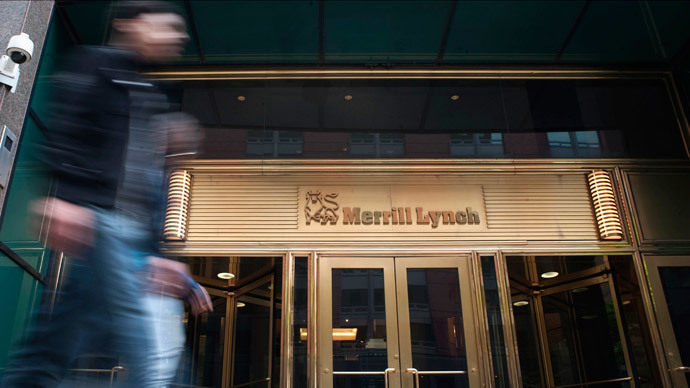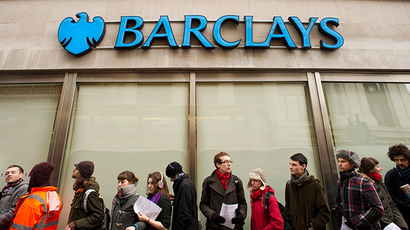Merrill Lynch unveils $8 million ‘boys club’

The entrance ticket to the new “Pinnacle Club” at Merrill Lynch is now $8 million, as the sum top brokers need to produce in commissions and fees has doubled. The joys of membership include $10,000 in cash and additional benefits, Reuters reports.
Merrill Lynch’s new high recognition club will replace the “Circle of Champions”, which requires bankers to produce at least $4 million in commissions and fees, and surpasses any recognition level set by any competitors in the financial industry. Merrill Lynch has eight recognition clubs employees participate in.
Rival banks Morgan Stanley, UBS Wealth Management Americas, and Wells Fargo Advisors have similar clubs for top brokers, but at lower levels - $2 or $3 million in annual revenue.
A subsidiary of Bank of America, the largest lender in the US, Merrill Lynch Wealth Advisors sell products to customers, and in turn, earn the bank profit on fees and commission. However, investment advisors are instructed to put the customers’ interest ahead of the bank’s.
Merrill’s brokerage team is one of the most aggressive- in the first 3 months of 2014, the bank reported 13,725 brokers were on target to produce an average of $1.06 million this year, one of the most competitive in the industry. However, the average misrepresents a collective view on the department, as some big time brokers are producing the lion’s share of deals. In 2013, less than 5,200 wealth managers were producing more than $1 million.
Even though banks are downsizing and letting staff go, Wall Street bonuses are still on the rise. In 2013 payouts jumped 15 percent- an average of $164,530 per banker, according to data by the New York State Comptroller.
The total bonus pool was $26.7 billion - the largest since the 2008 financial crisis. Following the crisis, big bank bonuses became a highly combative issue because many felt large sums were encouraging the risky behavior that led to the collapse.














